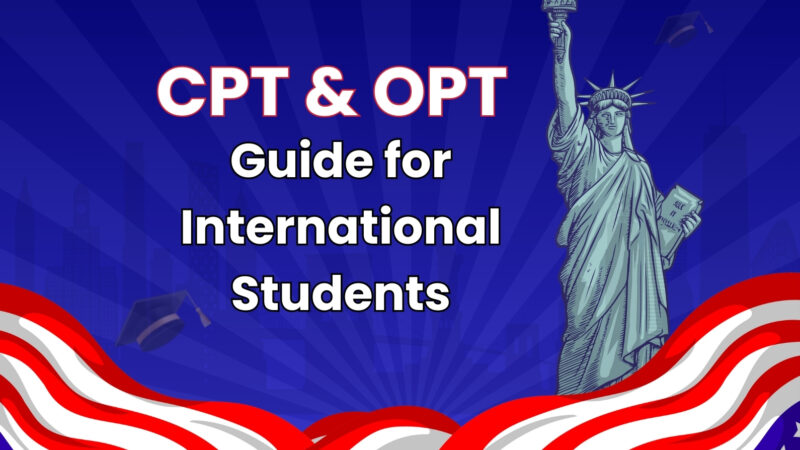
How AI Tools Are Reshaping International Admissions in 2026
In this article
- AI in the Pre-Application Phase
- Virtual Study Abroad Counselling Gets Smarter
- AI Streamlines the Application Process
- How Universities Use AI in Admissions Decisions
- AI in Visa, Compliance & Post-Admission Support
- Table: Key Areas Where AI Is Reshaping International Admissions
- Challenges and Ethical Concerns for International Students
- Conclusion
- Frequently Asked Questions
Artificial Intelligence (AI) has pushed far beyond buzzword territory—it’s now a powerful force actively reshaping industries, and education is no exception. In 2026, the global landscape of international admissions looks dramatically different than it did just a few years ago. AI is streamlining complex processes, helping students find better-fit programs, and even transforming how universities select their applicants.
This shift is especially impactful for international students navigating the rigorous requirements to study in the USA, Canada, the UK, Australia, and other top destinations.
The virtual study abroad counselling has become more intuitive and data-driven like never before as AI-driven systems begin to transform the way students engage with study abroad consultants.
Let us explore the ways AI devices are reinventing the playbook.
AI in the Pre-Application Phase
Hyper-Personalized University Matching
Days of ambiguous advice and purposeless shortlists are gone. In the current world, AI can view the academic history of a student, knowledge of different languages, extracurricular activities, and ambitions and create a personalized list of universities.
- Such applications are also applying AI algorithms to suggest schools by profile.
- Machine learning models consider thousands of data points—including recent admit trends, program competitiveness, and funding opportunities—ensuring students don’t waste time applying to the wrong schools.
Automated Eligibility Checks
AI tools can now scan academic transcripts, language test scores (like IELTS, TOEFL, or Duolingo), and work experience to validate eligibility for specific programs.
- For instance, platforms like Nomad Credit and ApplyBoard use real-time document parsing to assess whether you meet the requirements to study in USA for international students, like GPA cutoffs, language proficiency, and course prerequisites.
Virtual Study Abroad Counselling Gets Smarter
AI-Powered Chatbots for 24/7 Guidance
Smart bots are being incorporated into the services of study abroad consultants, so students will be able to receive live chats on popular questions about visa schedules, scholarships, timeframes, and SOP writing.
- TC Global chatbots are AI that emulates human interaction and is based on NLP (Natural Language Processing), which provides more relevant and interactive responses than basic FAQs.
Video + AI = Smart Counseling
Many platforms now offer virtual sessions where AI monitors facial cues and language use to assess stress or confidence levels. This helps counselors provide more adaptive support.
- Emotion-detection tools are still evolving, but companies like HireVue are applying similar tech in the job market—hinting at what’s possible in international education.
AI Streamlines the Application Process
SOP and Essay Drafting
AI writing assistants like Grammarly, Jasper, and Notion AI are helping students draft Statements of Purpose (SOPs), motivation letters, and scholarship essays. These tools not only make the writing more clear but also eliminate grammatical mistakes and even propose some improvements in terms of tone and intent.
⚠️ Notice: AI will be helpful, but the fundamental narrative must remain natural and intimate. Viewing Over-AI-d content is becoming a safety concern among universities and may be detected with the help of detecting tools.
Document Verification & Upload
- OCR (Optical Character Recognition) and ML-powered apps can scan, verify, and organize your application documents—transcripts, LORs, passports—with minimal human oversight.
- Tools like Mya and DocuSign’s AI engine are integrating into university portals to streamline this process.
How Universities Use AI in Admissions Decisions
It’s not just students benefitting—institutions are increasingly turning to AI to make smarter, data-driven decisions. This is especially relevant as application volumes spike post-pandemic.
AI-Supported Review Systems
Some universities are piloting AI tools to screen applications and rank them based on set rubrics—GPA, test scores, language proficiency, program fit, etc. This doesn’t eliminate human review but reduces overload.
The University of Georgia and UC Berkeley have explored AI-assisted admissions workflows in limited pilots (Source: Inside Higher Ed).
Bias Mitigation
AI can also help reduce bias in initial screening phases by anonymizing demographic data or using objective scoring metrics—though this depends entirely on how ethically and transparently the system is designed.
AI in Visa, Compliance & Post-Admission Support
AI tools are easing stress for international students even after admission.
Visa Documentation & Monitoring
- AI systems have been created to support the DS-160 form filling, financial document verification and SEVIS data upload.
- In other countries such as Australia and Canada, automated systems are applied in the migration departments to detect red flags in the visa or discrepancies.
AI in Post-Admit Engagement
Once admitted, AI tools help students track deadlines, book housing, or schedule orientation events. Some universities have even created AI-powered virtual assistants for admitted international students to navigate campus life and academic resources.
Table: Key Areas Where AI Is Reshaping International Admissions
| Phase | AI Application | Key Tools/Platforms |
| Pre-Application | Profile matching, eligibility checks | Yocket, ApplyBoard |
| Counseling | AI chatbots, emotion detection | TC Global, Unibuddy, Interstride, Nomad Credit |
| Application Submission | SOP enhancement, doc verification | Grammarly, Notion AI, DocuSign AI |
| University Review | AI-assisted scoring, bias mitigation | In-house ML tools, Berkeley prototypes |
| Post-Admission | Visa prep, orientation bots | Mya, CampusAI |
Challenges and Ethical Concerns for International Students
While the benefits are immense, it’s not all smooth sailing.
- Data Privacy: AI applications gather and process personal information. When abused, it may also be a serious threat to privacy.
- Algorithms Bias: When training data is biased, AI products will strengthen inequality, particularly towards students in underrepresented areas.
- Over-Reliance on Tech: Students might lose the human touch that traditional study abroad consultants offer—empathy, nuanced judgment, and emotional guidance.
That’s why the future is not about AI replacing humans—it’s about collaboration.
Conclusion
In 2026, the international admissions process is no longer the paperwork-heavy, manually-driven maze it once was.
AI tools are making it faster, smarter, and more personalized—for both students and institutions. From virtual study abroad counselling to fulfilling requirements to study in USA for international students, the landscape is more accessible than ever, provided students use AI wisely and ethically.
Technology may streamline the journey, but it’s still your story, your goals, and your dreams that fuel the destination.

Frequently Asked Questions
Can AI guarantee admission to top universities?
No. AI tools can optimize your application, but they can’t change your academic record or guarantee offers.
Are AI-written SOPs acceptable?
Universities are demanding genuineness. Artificial intelligence will assist in polishing your writing; however, the words have to be based on your own experience and inspirations.
Do universities disclose when they use AI for admissions?
Not always. Some schools are experimenting quietly. However, transparency is likely to grow due to ethical concerns.
How do I know if an AI tool is safe for sharing personal data?
Stick to reputed platforms with GDPR or similar privacy compliance and verified data handling policies.
Should I still use human study abroad consultants?
Absolutely. AI will be a helpful complement, but there will never be a replacement of personalized human instructions, particularly when it comes to interview preparations, visa guidance, and decision-making that is hard to grasp.
Book A Free Counseling
Related Blogs
Want to connect with
Our Experts?
We provide keep one to one counselling to
Study Abroad Aspirants









